Ruderal Practices
Artistic co-curating project with Sam Godfrey. A day of installations, workshops, and performance at Make-up in the framework of 2022 Project Space Festival, Berlin.
In response to the theme and provocations for the 2022 Project Space Festival, the project “Ruderal Practices” intended to consider and reflect on our individual, collective and artistic practices through the lens of the Ruderal, inspired by the spontaneous urban ecologies of Berlin.
“Ruderal Practices” explores how we can inhabit, survive and grow in in-between and precarious environments.
“Ruderal Practices” consisted of:
New Design ( 0uq “uield ), Thomas Mayer. Installation.
Photo: Dora Jacques Piaszek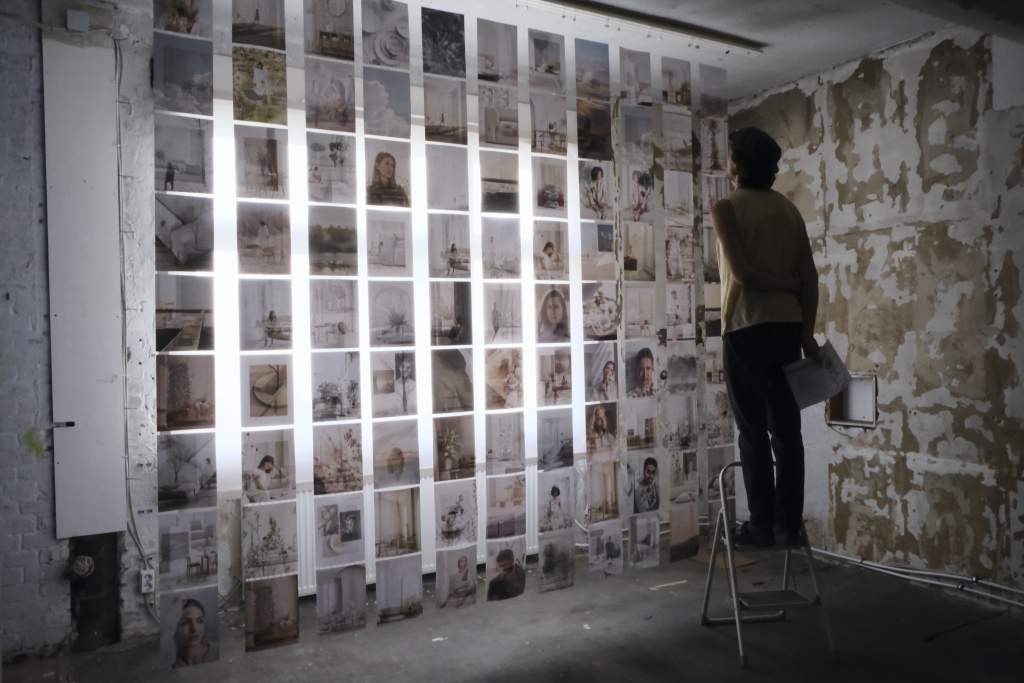
Ruderal Practices, Jérémie Le Hénaff. Installation.
Photo: Dora Jacques Piaszek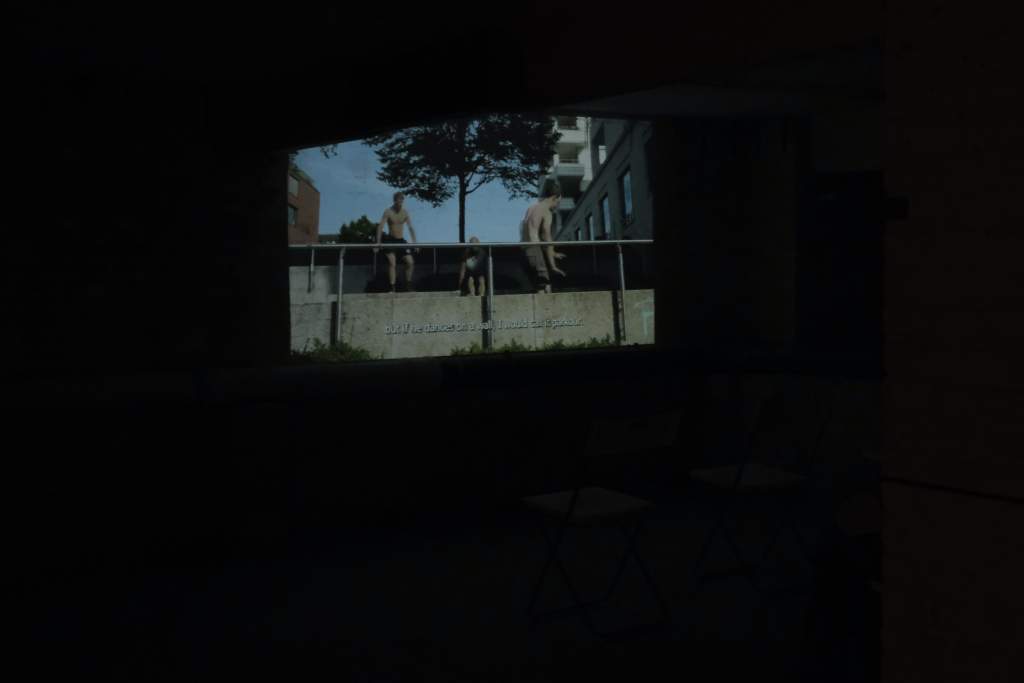
Project spaces as alternative support structures for emerging artists, Jakob Wirth. Workshop.
Photo: Dora Jacques Piaszek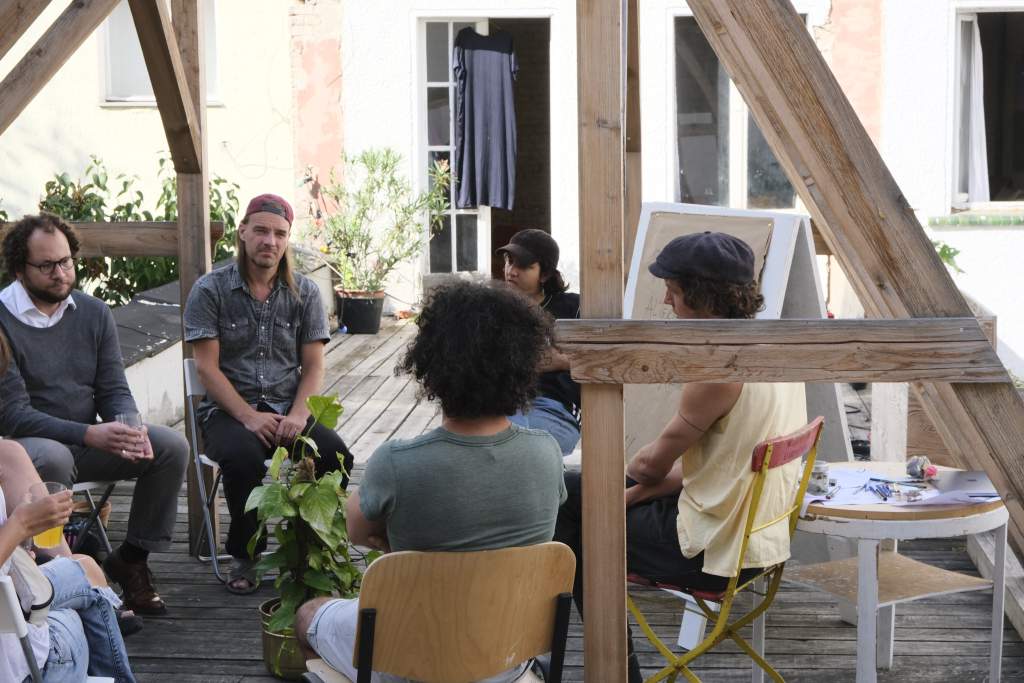
The Third Landscape: Retrieving the Commons. Marina Resende & Lea Baur. Workshop.
Photo: Dora Jacques Piaszek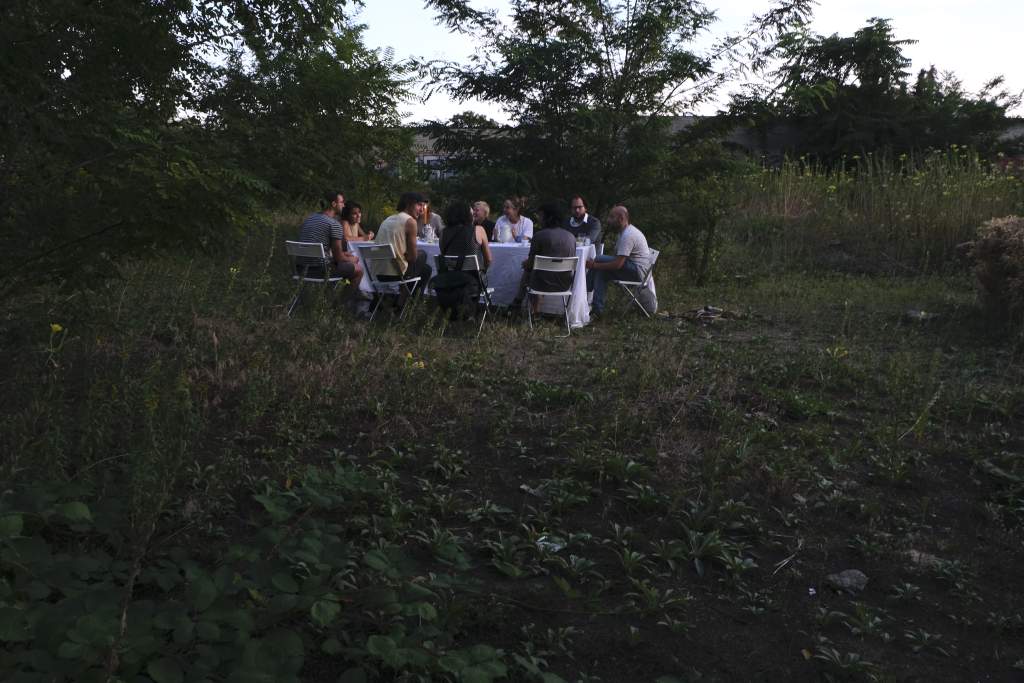
Hypersea Carrierbags, Paula Löffler, Frida Zack & Milosch Spielvogel. Environment performance.
Photo: Dora Jacques Piaszek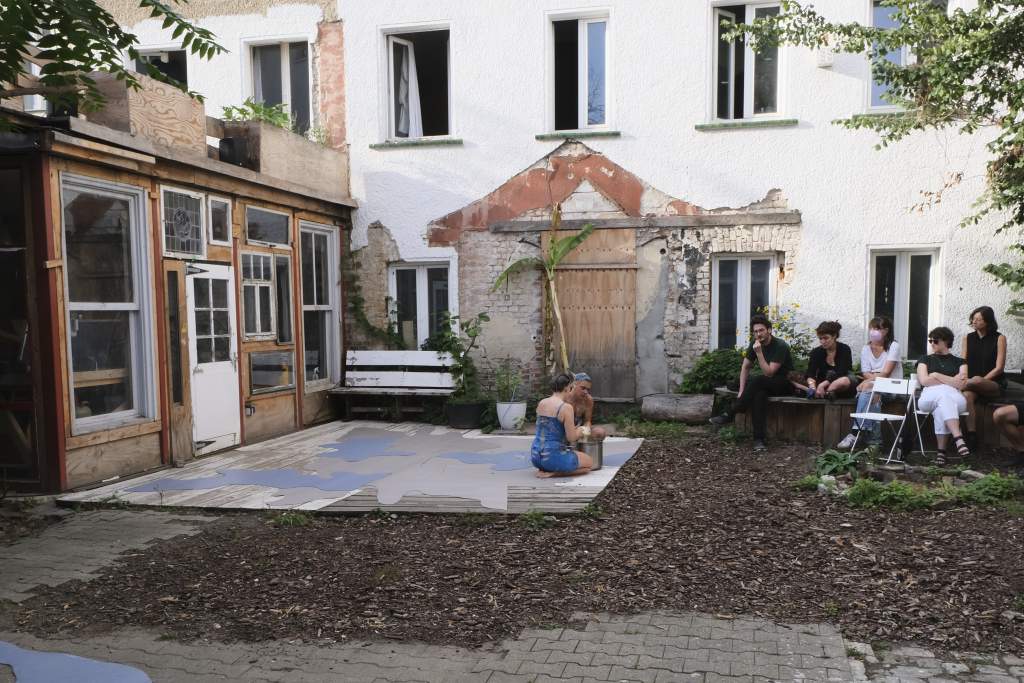
Curatorial Text
“We take the concept “ruderal”° in order to reflect on our individual, spatial and collective practices.
Ruderal plant species, so-called weeds, are those that spontaneously inhabit small or large disturbed places°° - such as cracks, wastelands or rubble - and adapt quickly to them. In these ecologies, plants respond flexibly to the availability of changing resources, and spontaneously bloom with no predetermined outcome other than their own survival. They form unintended and unruly ecologies, and depending on relationships and situations they can be either noxious or benign, healthy and regenerative. Ruderal plants are often viewed as undesired or unwelcome (though of course any plant could be seen as a ‘bad weed’ if it grows in a place that is not wanted).
It would be easy to use this solely as a metaphor for artists and project spaces in Berlin, but Make-up and its human and non-human inhabitants are very much in an entangled relationship with each other. The building is in disrepair; a ruin-in-waiting that will eventually be knocked down and replaced with something else; weeds that spring up through the cracks and snake through the courtyard; a constellation of people arriving in, and departing from, the space, trying to build a life, an art practice and a community together in a city of ghosts, rubble and travelling seeds°°°.
We view being ruderal as a potential – a way to actively grow inside this chaos, or a way to figure out new connections away from institutions that want you to be less unruly.”
~Sam Godfrey & Maria Paula Maldonado
° ruderal ecologies is a term coined by German ecologists after WWII, and has been used a way to understand and shape understandings of urban spaces and relationships °° especially those disturbed by humans. °°° as a starting point, we read an article by Bettina Stoetzer called ‘Ruderal Ecologies: Rethinking Nature, Migration and the Urban Landscape in Berlin,’ where she talks about how ruderal ecologies, greenwashing, racism and the city collide.
- Posted on:
- July 21, 2022
- Length:
- 3 minute read, 464 words
- Categories:
- x
- Series:
- Getting Started
- Tags:
- x